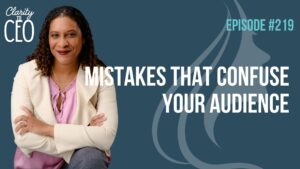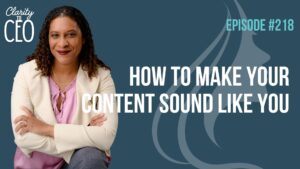The internet is a crowded place. The average person spends three hours per day on social media and nearly five hours online in general. And with more than half of small businesses using their website as the primary marketing tool, it’s imperative to have a strong SEO strategy in order to reach potential customers. In this blog post, we’ll cover some key strategies for optimizing your site for search engines and getting found by the people you want to reach most – your target audience!
What Is SEO?
How does SEO work?
Search engines such as Google and Bing use something called bots to crawl pages on the web, going from site to site, collecting information about those pages, and putting them in an index. To give you a visual, picture a spider literally crawling around each webpage on the internet, reading its content, and putting the details into a database. Another way to envision this is to think of the database or index like a giant library where a librarian can pull up a book (or a web page) to help you find exactly what you’re looking for at the time.Then next, something called algorithms analyzes each of the pages in the index, taking into account hundreds of ranking factors or signals, to determine the order pages should appear in the search results for a given query. In our library analogies, the spider has crawled through or the librarian has read every single book in the library and can tell you exactly which one will have the answers to your questions.
Why is SEO Important and How it helps your business
SEO is an essential part of digital marketing because people performing several trillions of searches every year, often with the intent to find information about products and services. For brands, search is typically the main source of digital traffic and is paired with other marketing channels. Greater visibility and ranking higher in search results than your competition can make a great difference in your bottom line.It is also true that the search results people are receiving have been evolving over the past few years to give us more direct answers and information. It has also shown that search results are providing results that are more likely to keep users on the results page instead of driving them to other websites.Also note, features like rich results and Knowledge Panels in the search results can increase visibility and provide users more information about your company directly in the results.SEO is the foundation of a well-rounded marketing strategy. When you understand what your website users want, you can then implement that knowledge across your campaigns (paid and organic), across your website, across your social media properties, and more.
What you can do to improve your SEO
Managing SEO for small businesses can appear to be daunting and difficult. For a small business owner, it is more critical than SEO for larger brands competing for a top place in the SERPs. Since this is the case, the ideal approach is to focus on organic positioning hacks that would boost your website traffic and sales. Here are 5 tips that most business owners can do without being an SEO expert and can improve your website’s traffic.
1. Optimize your website for SEO
There are two different types of SEO to consider, on-page and off-page. On-page SEO focuses on optimizing parts of your website that are within your control, while off-page SEO focuses on increasing the authority of your domain through content creation and earning backlinks from other websites. Today we are focusing on the on-page SEO, the parts you can make an impact on today. If your website isn’t optimized at the on-page SEO level, it can become even harder to achieve a higher rating in the search results. To help with this here are a few things you can focus on:
- High-Quality Page Content
- Page Titles
- Headers
- Meta Descriptions
- Image Alt-text
- Structured Markup
- Page URLs
- Internal Linking
- Mobile Responsiveness
- Site Speed
2. Create a content strategy for your business
Content is king when it comes to your SEO impact. To maximize the SEO impact of your website, it is essential to set a goal of providing quality content to your readers. In the case of small businesses, the need to offer added value with your content is huge.To do this, put yourself in the shoes of your target audience and answer their questions, their concerns, and their doubts with your how-to guides, useful videos, in-depth ebooks, and everything else that has a place in a successful content strategy.
3. Choose and target specific keywords
If you want to be seen and heard, you need to work hard to stand out from your competition, really put your value proposition on display. Using specific keywords on your website will help drive the traffic you need where you can then provide them with the quality of your product or services. When it comes to selecting the right keywords you really need to think about what people are searching for. Big companies like Nike can use generic keywords like shoes or sneakers and get away with it. However, for smaller businesses that are still making a name for themselves, this is not the case. You need to invest in using more long-tail and specific keywords. So if you sell sneakers also, you may need to consider longer keywords like “Most Durable Sneakers in Montgomery County.”If you need inspiration, take a look into what your competitors are using. From there create your own keywords and start to test out which ones make the biggest impact in driving traffic to your website.
4. Get active and passive links
Active and passive links are basically link-building. This is where you start o generate valuable content that people begin to notice and start to share or reference your content by linking to your site from their own channels. To stand out and attract attention to get shares and links, you can include various formats such as multimedia content, infographics, podcasts, interviews, tutorials, and guest articles in your content strategy. There are also many opportunities to improve the positioning offered by link building or the active generation of links.
5. Launch a local SEO strategy
Lastly, and my favorite is building your SEO credibility with a strategy, especially a local strategy for businesses with a brick & mortar location. The SEO for small businesses with a physical headquarters becomes more robust if it includes local positioning strategy, meaning keyword, and location. This potent tool will bring traffic to your store since users who do this type of search are interested in a specific product or service and in acquiring it in a particular location. Local positioning strategies depend significantly on the Google My Business tool, so don’t forget to create your GMB account.
Free SEO Tools
There are many SEO tools out there to help you improve your rankings. However, many of the professional SEO tools cost around $100 per month. Given that this is a guide to SEO basics, you may not be quite ready to invest that kind of money into powerful SEO tools like Ahrefs just yet. But not to worry. You can achieve a lot with free SEO tools.Here are a few popular free tools that help you achieve several of the items mentioned above.
Keyword research tools
- Google Keyword Planner – Find unique keyword ideas.
- Keyword Generator – Generate hundreds of keyword ideas.
- SERP Checker – Check the estimated search traffic potential for the topic based on the top three results.
- Keyword Difficulty Checker – Check the Keyword Difficulty (KD) score of the keyword.
On-page SEO tools
- Yoast SEO – Add title tags and meta descriptions to WordPress posts and pages.
- Ahrefs Webmaster Tools – Find missing title tags, meta descriptions, and alt text anywhere on your site.
Link building tools
- Ahrefs’ Backlink Checker – See the top 100 backlinks to any website or web page.
- HARO – Get link opportunities daily. (It’s technically more of a service than a tool)
- Gmail – Send outreach emails to link prospects. No fancy outreach software is needed.
Technical SEO tools
- Google Search Console – Find index coverage errors, page speed issues, and more.
- Ahrefs Webmaster Tools – Find 100+ SEO issues on your website, including many technical issues.
Mastering SEO is a marathon, it is not a sprint. It is not something you or anyone can do overnight. There are no quick fixes and ways to boost your organic footprint online. But implement these simple enhancements to your website can significantly improve your chances and get your name out there. And over time, if you keep it up you will begin to see improvements. When you are ready and able, investing in a quality SEO expert will help to fill in all the gaps and more hi-level SEO tactics that are not discussed in this basic overview. Until then, do what you can with the resources that you have. Do you have any SEO tactics that you would like to share and suggest? Please do, and if there are any marketing topics you would like to see included in future content, drop a comment below and let us know.
Sources: https://www.entrepreneur.com/article/380562 , https://www.searchenginejournal.com/seo-advice-for-beginners/419966/ , https://www.wordstream.com/blog/ws/2015/04/30/seo-basics , https://ahrefs.com/blog/seo-basics/















